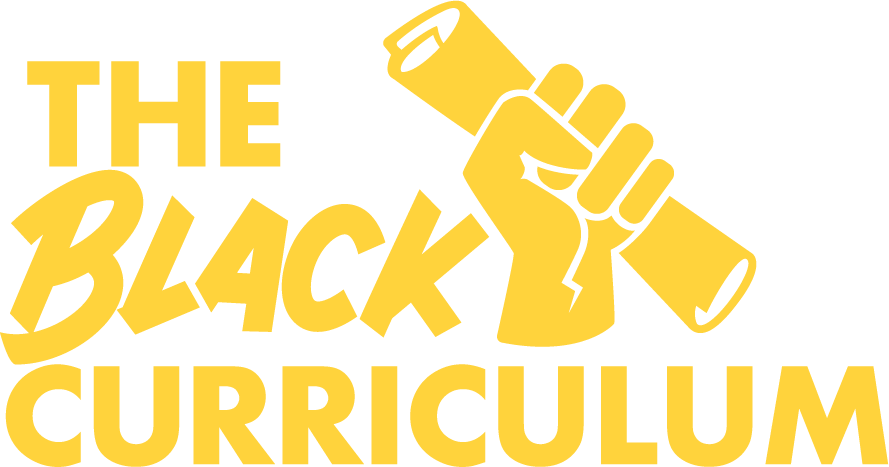
Our Blog
At The Black Curriculum, our arts-focused learning practice is centred around the retelling and rediscovery of stories. Just like you, our team is continuously learning - have a read of our thoughts and join us on our journey!

Springboard Programme: London Launch, July 2021
On July 24th 2021, we kicked off the first of our Springboard Programme sessions in London. Attendees received a lesson on Britain's Black history, then delved deeper into the concept of globalisation and new sounds. Read on for a snapshot of the fun!

Liverpool’s historical links to slavery is something everyone should learn about
How much of Liverpool's Black history do you know already? Liverpool is a city known for its rich maritime history, culture and arts heritage. During the 18th century, Liverpool made about £300,000 a year from the slave trade. The slave trade was the backbone of the city’s prosperity and the reinvestment of proceeds gave stimulus to trading and industrial development throughout the north-west of England and the Midlands.
Our Springboard programme kicks off in Liverpool on Sat 2nd Oct! If you know an 11-16 year old who would love to learn about their local Black history?
Sign them up to our FREE Springboard Programme, click here to register!

Summer Activities: UK’s top places to learn Black British history
The Black Curriculum is committed to teaching Black British history all year round.
Join in on some summer fun by downloading our map with plotted places where history happened, from the first public sculptures of Black Britons to powerful and moving displays about the transatlantic slave trade and its legacies. Enjoy a fun day out with your family and educate yourselves about the Black histories of places in the UK that celebrate the accomplishments of those associated with them.

Springboard Programme: Why young people love arts-based learning
The National Springboard Programme is a free arts-based programme teaching young people Black British history through the lens of music art and spoken word. Ahead of our Springboard launch in London on 24 July, some of our team shared why they think arts-based learning is important and what they are most looking forward to when teaching the programme.

#TBH365 ONE YEAR ON
We’re celebrating one year since we started our transformative campaign calling for curriculum change which ensures Black British history is made a mandatory part of the curriculum…

Lush x The Black Curriculum: The #TBH365 Bath Bomb
We are thrilled to have teamed up with Lush to launch the #TBH365 bath bomb! We are challenging you to reflect on how much Black history you learnt at school. Find your local Lush window and see how much you know…

Black Healthcare Workers In British History Everyone Should Learn About
To celebrate #InternationalNursesDay we’re sharing the stories of Black healthcare workers in British History…

International Jazz Day: Celebrating Black British Jazz
To celebrate International Jazz Day, one of our educators writes about the movement of jazz throughout history, her experience of jazz growing up, and the power of creative expression.

What does autism look like?

5 Black Owned Book Stores You Can Support in the UK

5 Iconic Black British Women In History You Should Know About.
To celebrate International Women’s Day, we’re sharing 5 iconic Black British women who lived inspiring lives and left powerful legacies. At The Black Curriculum, we believe that teaching Black British histories are vital to helping empower students and providing them with a sense of identity and belonging.

Martin Luther King was from Atlanta, Georgia, not Lewisham, London. Why context matters.
Today, Black History Month remains a time in which iconic figures and pivotal moments through Black America’s history are remembered and celebrated. With the growing commercialisation of holidays, BHM in the US has also dipped into the TV and Media world, with many choosing to centre Black narratives or market their brands/businesses to celebrate their ‘black audiences’.

5 ways the national lockdown has increased educational inequality in the UK
It’s fair to say that everyone has been negatively impacted by the coronavirus in some way or another. Arguably, the recipients of some of the most long lasting effects of the pandemic are students. Whether it’s losing out on teaching time at university, not being able to do exams at A-level, or missing out on that social interaction that is so crucial to young children. Not only has this had irreversible impacts, but the COVID-19 outbreak has exposed, and widened, the educational inequality gap in the UK.

10 Poems to Read on Black British History (Past Black History Month)

The Activists’ Guide for Encouraging Your Local School to go further than Black History Month
We joke about how 2020 needs to be forgotten. But there are some things we cannot, or do not, want to forget. We can’t forget the video of George Floyd’s murder and we don’t want to forget how people of all religions, races, genders, sexual orientations stood up and said enough is enough and that Black Lives Matter (BLM) in protests across the world.

Embracing my Roots

How The DfE’s New Guidelines Impact The Future Of Liberatory Teaching
On the 24th September 2020, the Department for Education shared new guidance for PSHE programming which has left us extremely concerned. As a social enterprise seeking to embed the teaching of Black History in schools throughout the year, we felt we should share how this guidance could affect teaching, the school experience and how to support organisations that are challenging the recent guidelines.

Why Black British History is Important To Me: Will Poulter
It wasn’t until after I left school that I had a black history lesson that did not make slavery and oppression its primary focus. That is no one’s fault but my own. But, perhaps at the highest level, it also lies with the policymakers in government who have not done enough to include the historical experiences of black people, and people of colour in our national curriculum.

Racial Literacy: What does it mean?
What is your first memory of racial difference? I ask this question when I run race awareness training course in companies I work with. The diversity of responses always fascinates me. I am amazed at how different people’s experiences of ‘race’ are. It ranges from white people who went to multi-cultural schools. Who, are very racially aware and confident in the language they use and their knowledge of cultural difference. To white people, who didn’t encounter racial difference until they interacted with people from different cultures in university or their first city-based jobs. To black Africans, who also didn’t experience the concept of ‘race’ until they moved to the UK and were othered for the first time, no longer in a black majority.

Dealing with Black History Month Burnout
It all begins with an idea.
